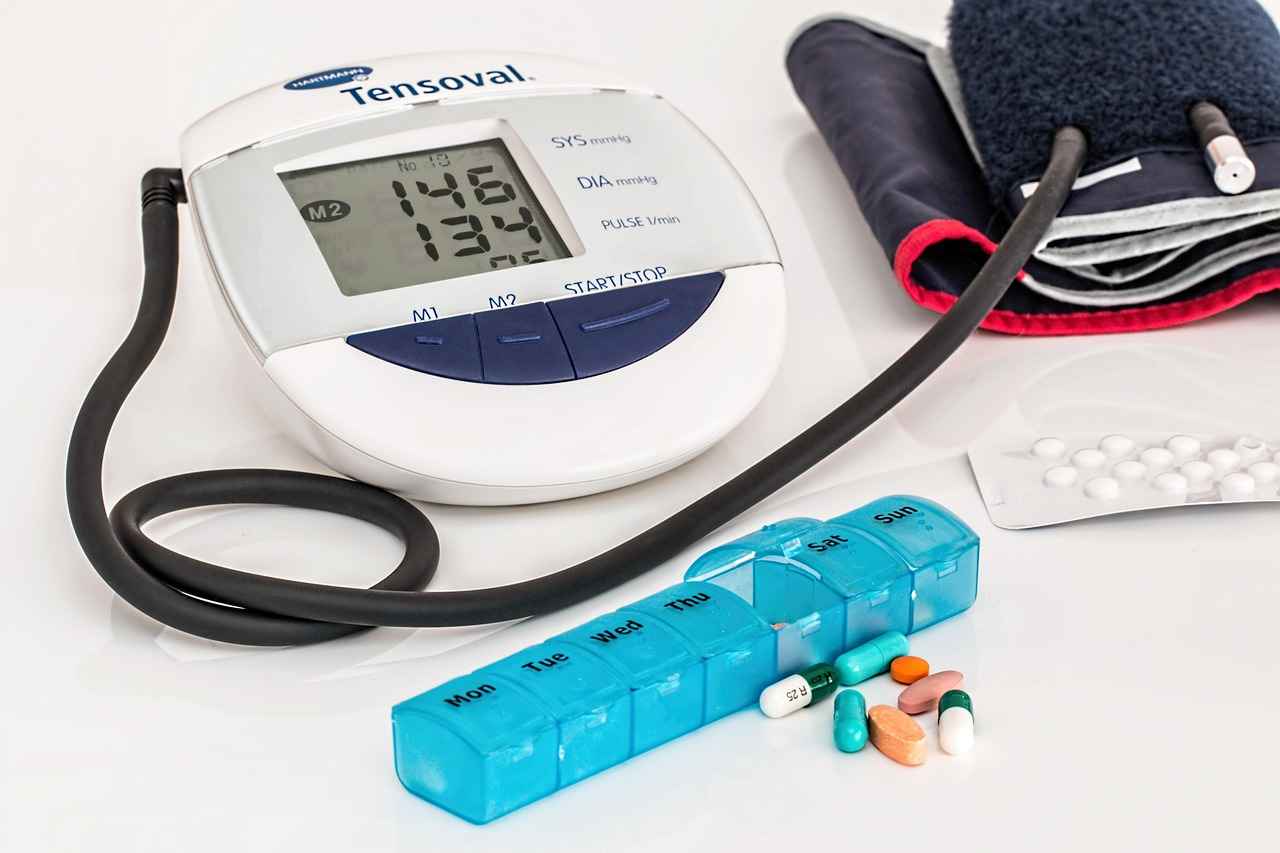This article delves into the science behind nootropic supplements, exploring their benefits, popular types, and how they can enhance cognitive functions such as memory, focus, and overall brain health.
What Are Nootropics?
Nootropics, commonly known as smart drugs, are substances designed to enhance cognitive abilities. Originally coined in the 1970s, the term encompasses a wide variety of compounds, both natural and synthetic, that improve brain function.
How Do Nootropics Work?
Understanding the mechanisms behind nootropics is essential. These supplements primarily affect neurotransmitters—the chemical messengers in the brain—thereby improving mental performance.
- The Role of Neurotransmitters: Nootropics can influence neurotransmitter levels, enhancing cognitive abilities.
- Acetylcholine and Memory: This neurotransmitter is crucial for memory and learning. Nootropics can increase acetylcholine levels, leading to improved memory retention.
- Dopamine and Motivation: Dopamine impacts mood and motivation. Certain nootropics are known to boost dopamine production, enhancing focus and drive.
Common Types of Nootropic Supplements
There is a plethora of nootropic supplements available today, ranging from natural herbs like Ginkgo Biloba to synthetic compounds like Modafinil. Each type has unique properties and benefits.
Benefits of Nootropic Supplements
- Improved Memory Retention: Nootropics are particularly effective in enhancing memory.
- Enhanced Focus and Concentration: Users often report increased ability to concentrate on tasks for extended periods.
Potential Side Effects of Nootropics
While nootropics can be beneficial, they may also lead to side effects. Common adverse effects include headaches, insomnia, and digestive issues.
Understanding Tolerance and Dependency: Some users may develop a tolerance to nootropics, which can lead to dependency. It is crucial to use these supplements responsibly.
Consulting with Healthcare Professionals: Before starting any nootropic regimen, it is essential to consult with a healthcare provider for tailored advice and safety.
Conclusion: Nootropic supplements offer promising benefits for cognitive enhancement, but awareness of their effects and responsible usage is vital for maximizing their potential.

What Are Nootropics?
Nootropics, commonly known as smart drugs, are a class of substances designed to enhance cognitive functions such as memory, creativity, and motivation in healthy individuals. The term “nootropic” was first coined in 1972 by Romanian psychologist Corneliu E. Giurgea, who derived it from the Greek words “nous” (mind) and “tropein” (to turn or change). His initial focus was on creating compounds that could improve cognitive function without significant side effects.
Nootropics can be classified into several categories based on their origin and mechanism of action:
- Natural Nootropics: These are derived from plants and herbs. Examples include Ginkgo Biloba, known for its memory-enhancing properties, and Rhodiola Rosea, which is reputed to reduce fatigue and improve mental performance.
- Synthetic Nootropics: These are man-made compounds designed to enhance cognitive function. Modafinil is a well-known example, often used to treat sleep disorders but also popular among students and professionals for its ability to improve focus and alertness.
- Racetams: A subclass of synthetic nootropics, racetams, such as Piracetam, are known for their potential to enhance memory and learning capacity.
Understanding the origins and classifications of nootropics is essential for users looking to enhance their cognitive abilities safely and effectively. While many nootropics are generally regarded as safe, it is crucial to approach their use with caution and awareness of potential side effects.
In conclusion, nootropics encompass a wide range of substances that can potentially enhance cognitive function. As research continues to evolve, these compounds may offer exciting possibilities for improving mental performance in various contexts.

How Do Nootropics Work?
Understanding the mechanisms behind nootropics is essential for anyone interested in enhancing their cognitive abilities. Nootropics, often referred to as “smart drugs,” are substances that can improve various aspects of brain function, including memory, focus, and overall mental performance. This section delves into the intricate ways these supplements interact with the brain’s chemistry.
At the core of nootropic function is their ability to influence neurotransmitters, the chemical messengers that facilitate communication between neurons. By modulating the levels of these neurotransmitters, nootropics can enhance cognitive processes. For example, certain nootropics increase the availability of acetylcholine, a neurotransmitter crucial for learning and memory. Higher acetylcholine levels can lead to improved memory retention and quicker learning capabilities.
Another key neurotransmitter affected by nootropics is dopamine, which plays a vital role in motivation and mood regulation. Some nootropics can boost dopamine production, thereby enhancing motivation and focus. This effect is particularly beneficial for individuals looking to improve their productivity and mental clarity during challenging tasks.
Moreover, the impact of nootropics extends beyond neurotransmitter modulation. Many compounds also promote neuroplasticity, the brain’s ability to adapt and reorganize itself. This is essential for long-term cognitive enhancement, as it allows individuals to develop new skills and improve existing ones over time.
In summary, the effectiveness of nootropics lies in their multifaceted approach to brain function. By affecting neurotransmitter levels and promoting neuroplasticity, these supplements can significantly enhance cognitive performance, making them a popular choice for students, professionals, and anyone looking to boost their mental faculties.
The Role of Neurotransmitters
Neurotransmitters are chemical messengers that facilitate communication between neurons in the brain. They play a crucial role in regulating a variety of cognitive functions, including mood, memory, and attention. Understanding how these neurotransmitters function is essential for grasping the impact of nootropic supplements on brain health.
Nootropics, often termed as smart drugs, can significantly influence the levels of these neurotransmitters, thereby enhancing cognitive abilities. By modulating neurotransmitter activity, nootropics can lead to improved mental performance, increased focus, and better memory retention.
One of the primary neurotransmitters affected by nootropics is acetylcholine. This neurotransmitter is pivotal for memory and learning. Nootropics that increase acetylcholine levels can enhance synaptic plasticity, which is essential for forming new memories. For instance, supplements like Alpha GPC and Huperzine A are known to boost acetylcholine, resulting in improved cognitive function.
Another important neurotransmitter is dopamine, which is linked to motivation and rewardRhodiola Rosea and Tyrosine are known to support dopamine levels, potentially leading to increased drive and concentration during demanding tasks.
Moreover, nootropics can also affect other neurotransmitters such as serotonin and GABA, which are vital for mood regulation and anxiety management. By balancing these neurotransmitters, nootropics can contribute to an overall sense of well-being, aiding in cognitive clarity and emotional stability.
In conclusion, the influence of nootropics on neurotransmitter levels is a key factor in their ability to enhance cognitive abilities. By understanding this relationship, individuals can make informed choices about incorporating nootropic supplements into their daily routines for improved brain health.
Acetylcholine and Memory
Acetylcholine is a crucial neurotransmitter that plays a significant role in memory and learning. It is primarily found in the brain and is essential for various cognitive functions. Understanding how to enhance acetylcholine levels can lead to improved memory retention, which is why many individuals are turning to nootropic supplements for support.
Nootropics, often referred to as smart drugs, are compounds that can enhance cognitive abilities, including memory, focus, and mental clarity. By increasing the levels of acetylcholine, nootropics can facilitate better communication between neurons, thereby enhancing the brain’s overall function.
| Nootropic | Effect on Acetylcholine | Memory Enhancement |
|---|---|---|
| Alpha-GPC | Increases acetylcholine levels | Improves recall and learning speed |
| Citicoline | Supports acetylcholine synthesis | Enhances memory retention |
| Huperzine A | Inhibits acetylcholinesterase | Boosts cognitive function |
Research indicates that individuals who supplement with these nootropics may experience significant improvements in their ability to retain information and learn new concepts. For instance, studies have shown that Alpha-GPC not only increases acetylcholine levels but also enhances overall cognitive performance.
Moreover, the combination of nootropics with a healthy lifestyle, including a balanced diet and regular exercise, can further amplify their effects on memory. It is essential to approach nootropic use with caution and to consult with healthcare professionals before starting any regimen.
In conclusion, enhancing acetylcholine levels through nootropic supplements can lead to remarkable improvements in memory and learning capabilities. By understanding the role of acetylcholine and utilizing effective nootropics, individuals can optimize their cognitive function and achieve better memory retention.
Dopamine and Motivation
Dopamine is a crucial neurotransmitter that plays a significant role in regulating motivation and mood. It is often referred to as the “feel-good” hormone, as it is associated with pleasure and reward pathways in the brain. This section will explore how certain nootropic supplements can enhance dopamine production, leading to improved motivation and focus.
One of the primary ways nootropics influence dopamine levels is by increasing the availability of its precursors or enhancing its synthesis. For instance, supplements like Tyrosine and Phenylalanine serve as building blocks for dopamine production. By supplementing with these amino acids, individuals may experience a boost in dopamine levels, which can translate to heightened motivation and an overall uplift in mood.
Moreover, certain herbal nootropics, such as Rhodiola Rosea and Mucuna Pruriens, have been shown to enhance dopamine activity. Rhodiola Rosea is known for its adaptogenic properties, helping the body manage stress, which can indirectly support dopamine production. Mucuna Pruriens, on the other hand, contains L-DOPA, a direct precursor to dopamine, making it particularly effective in promoting its levels in the brain.
Studies have indicated that increased dopamine availability can lead to improved cognitive functions, particularly in areas related to focus and attention. For example, individuals who experience low motivation often find it challenging to concentrate on tasks. By enhancing dopamine levels through nootropic supplementation, they may find it easier to engage with their work or studies, leading to improved productivity.
In conclusion, the relationship between dopamine, motivation, and mood is profound. By utilizing specific nootropic supplements that boost dopamine production, individuals can enhance their motivation and focus, paving the way for greater success in both personal and professional endeavors.
Common Types of Nootropic Supplements
Nootropic supplements have gained immense popularity due to their potential to enhance cognitive functions. These supplements can be broadly categorized into natural and synthetic options, each with unique benefits and characteristics.
| Type | Description | Examples |
|---|---|---|
| Natural Nootropics | Derived from plants and natural sources, these nootropics are often considered safer and have fewer side effects. | Ginkgo Biloba, Bacopa Monnieri, Rhodiola Rosea |
| Synthetic Nootropics | Man-made substances designed to enhance cognitive function, often with more potent effects. | Modafinil, Racetams (like Piracetam), Noopept |
Natural Nootropics are popular for their holistic approach to brain health. For instance, Bacopa Monnieri is known for its ability to improve memory and reduce anxiety. Similarly, Ginkgo Biloba is often used to enhance blood flow to the brain, which may aid in better cognitive function.
On the other hand, Synthetic Nootropics are typically more potent and targeted. Modafinil is widely recognized for its ability to promote wakefulness and enhance focus, making it a favorite among students and professionals alike. Piracetam, one of the first racetams developed, is often touted for its potential to improve memory and learning capacity.
As you explore the world of nootropic supplements, it’s essential to consider your individual needs and consult with a healthcare professional to determine the best option for you.

Benefits of Nootropic Supplements
Nootropics have garnered significant attention in the world of cognitive enhancement, and for good reason. These supplements, often dubbed as “smart drugs,” provide a multitude of cognitive benefits that can help individuals unlock their full mental potential. This section will delve into the primary advantages of nootropic supplements, focusing on improved memory, enhanced focus, and increased mental clarity.
| Benefit | Description |
|---|---|
| Improved Memory | Nootropics can significantly enhance memory retention and recall. By optimizing neurotransmitter levels, particularly acetylcholine, these supplements help in forming and retrieving memories more effectively. |
| Enhanced Focus | Many nootropics are known to sharpen focus and concentration. They can help reduce distractions, allowing individuals to maintain attention on tasks for longer periods, which is particularly beneficial for students and professionals alike. |
| Increased Mental Clarity | Nootropics can clear mental fog, leading to improved clarity of thought. This can result in better decision-making and problem-solving abilities, making it easier to tackle complex challenges. |
Furthermore, some nootropics also promote neuroprotection and overall brain health, which can contribute to long-term cognitive benefits. Regular use of nootropic supplements can lead to a more agile mind, capable of adapting to new information and experiences.
In conclusion, the cognitive benefits of nootropic supplements are diverse and impactful. By enhancing memory, focus, and mental clarity, these substances can significantly improve day-to-day mental performance. However, it’s crucial to approach their use responsibly and consult healthcare professionals when necessary to maximize benefits while minimizing potential side effects.
Improved Memory Retention
Memory retention is a crucial cognitive function that significantly impacts our daily lives, from academic performance to workplace efficiency. Nootropics, often dubbed as smart drugs, have gained popularity for their potential to enhance memory and cognitive abilities. This section delves into specific nootropics that are particularly effective in boosting memory retention.
One of the most well-known nootropics for memory enhancement is Piracetam. This compound is believed to improve the function of acetylcholine, a neurotransmitter crucial for memory formation and learning. By increasing acetylcholine levels, Piracetam can enhance synaptic plasticity, which is vital for retaining new information.
Another notable nootropic is Huperzine A, derived from the Chinese club moss plant. Huperzine A works by inhibiting the enzyme that breaks down acetylcholine, thereby increasing its availability in the brain. This mechanism not only boosts memory retention but also improves overall cognitive function.
Bacopa Monnieri, a traditional Ayurvedic herb, is also recognized for its memory-enhancing properties. Research indicates that Bacopa can improve memory recall and cognitive processing speed. Its active compounds, called bacosides, are thought to promote the growth of nerve endings and enhance communication between neurons.
| Nootropic | Mechanism | Benefits |
|---|---|---|
| Piracetam | Enhances acetylcholine function | Improved memory formation |
| Huperzine A | Inhibits acetylcholine breakdown | Increased memory retention |
| Bacopa Monnieri | Promotes nerve growth | Enhanced recall and cognitive speed |
In conclusion, incorporating nootropics like Piracetam, Huperzine A, and Bacopa Monnieri into your regimen may significantly enhance your memory retention capabilities. However, it is essential to consult with a healthcare professional before starting any new supplement to ensure safety and efficacy.
Enhanced Focus and Concentration
Nootropics, often regarded as cognitive enhancers, are gaining popularity among individuals seeking to boost their focus and concentration. These supplements have been studied extensively for their potential to improve mental clarity and help users maintain attention over prolonged periods. In this section, we will delve into the mechanisms through which nootropics operate and their impact on cognitive performance.
One of the primary ways nootropics enhance focus is by increasing the levels of essential neurotransmitters in the brain. Neurotransmitters such as acetylcholine and dopamine play crucial roles in attention and motivation. By optimizing the balance of these chemicals, nootropics can lead to improved mental agility and sustained concentration.
- Acetylcholine: This neurotransmitter is critical for learning and memory. Nootropics that boost acetylcholine levels can enhance cognitive functions, allowing individuals to focus on tasks without distractions.
- Dopamine: Known as the “feel-good” neurotransmitter, dopamine is linked to motivation and reward. Nootropics that elevate dopamine levels can enhance mood and drive, making it easier to concentrate on challenging tasks.
Additionally, certain nootropics can improve blood flow to the brain, which increases oxygen and nutrient delivery. This enhanced cerebral circulation can lead to better overall brain performance, allowing for sharper focus and quicker information processing.
Moreover, many users report that nootropics help reduce mental fatigue, enabling them to work for extended periods without experiencing the usual cognitive decline. This is particularly beneficial for students and professionals who need to maintain high levels of concentration during demanding tasks.
In conclusion, by leveraging the power of nootropics, individuals can significantly enhance their focus and concentration. These cognitive enhancers provide a valuable tool for anyone looking to improve their mental performance and achieve their goals.

Potential Side Effects of Nootropics
While nootropics can offer significant cognitive enhancements, it is essential to recognize that they may also come with a range of side effects. Understanding these potential adverse effects is crucial for anyone considering the use of these supplements. This section aims to provide a comprehensive overview of common side effects associated with nootropic use and emphasizes the importance of responsible consumption.
- Headaches: One of the most frequently reported side effects is headaches. This can occur due to various factors, including dehydration or overstimulation of neurotransmitters.
- Insomnia: Some users may experience difficulty sleeping, particularly if nootropics are taken later in the day. This can lead to a cycle of fatigue and reliance on stimulants.
- Nausea: Gastrointestinal discomfort, including nausea, can occur, especially when taking nootropics on an empty stomach.
- Anxiety: While some nootropics are designed to enhance mood, others may inadvertently increase anxiety levels, particularly in sensitive individuals.
- Dependency: Over time, users may develop a tolerance to certain nootropics, leading to increased dosages and potential dependency.
It is vital to approach nootropic use with caution. Responsible usage entails starting with lower doses, monitoring effects closely, and allowing breaks between cycles to minimize tolerance. Additionally, consulting with a healthcare professional before beginning any nootropic regimen is highly recommended. This ensures that users can make informed decisions based on their individual health profiles and avoid adverse interactions with other medications.
In conclusion, while nootropics can provide cognitive benefits, being aware of their potential side effects is essential for safe and effective use. By prioritizing responsible consumption and seeking professional advice, users can maximize the benefits while minimizing risks.
Understanding Tolerance and Dependency
Nootropics, while often celebrated for their cognitive-enhancing properties, can lead to tolerance and potential dependency in some users. Tolerance occurs when the body becomes accustomed to a substance, requiring higher doses to achieve the same effects. This phenomenon can pose risks, particularly for those who may start relying on nootropics to function optimally.
The development of tolerance can diminish the effectiveness of nootropics over time, leading users to increase their intake, which may inadvertently heighten the risk of dependency. Dependency can manifest as a psychological reliance on these substances, where individuals feel they cannot perform daily tasks without them. This cycle can be detrimental to both mental and physical health.
To mitigate these risks, it is essential to approach nootropic use with caution and mindfulness. Here are some strategies to consider:
- Cycle Usage: Implementing a cycling strategy, where users take breaks from nootropic use, can help reset the body’s response and reduce the likelihood of developing tolerance.
- Start with Low Doses: Initiating nootropic use with lower doses can allow users to assess their individual responses without overwhelming their systems.
- Monitor Effects: Keeping a journal to track cognitive performance and any side effects can help users make informed decisions about their nootropic regimen.
- Consult Professionals: Engaging with healthcare professionals or nutritionists can provide personalized advice and recommendations tailored to individual needs.
In conclusion, while nootropics can offer significant cognitive benefits, it is crucial to remain aware of the potential for tolerance and dependency. By practicing responsible usage and implementing preventive strategies, users can enjoy the advantages of nootropics while minimizing risks.
Consulting with Healthcare Professionals
Before embarking on any nootropic regimen, it is crucial to consult a healthcare provider. This step is not merely a suggestion but a fundamental aspect of responsible nootropic use. The world of cognitive enhancers can be complex, and individual responses to these substances can vary significantly.
Healthcare professionals can provide valuable insights based on your unique health profile, including any pre-existing conditions or medications you may be taking. They can help determine whether a specific nootropic is appropriate for you and advise on dosage to minimize potential side effects.
- Personalized Guidance: Every individual has different health needs. A healthcare provider can offer tailored recommendations.
- Risk Assessment: Certain nootropics may interact negatively with other medications. A professional can help identify these risks.
- Monitoring Effects: Regular check-ins with a healthcare provider can ensure that you are experiencing the desired effects without adverse reactions.
Furthermore, the importance of professional guidance extends beyond initial consultation. As you begin to incorporate nootropics into your routine, ongoing communication with a healthcare provider can help track your progress and make necessary adjustments. This proactive approach can enhance the effectiveness of your regimen while safeguarding your health.
In conclusion, while the allure of cognitive enhancement is strong, the importance of consulting a healthcare professional cannot be overstated. They are equipped to provide the necessary support and knowledge to help you navigate the complexities of nootropic use safely and effectively.







